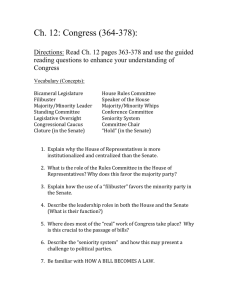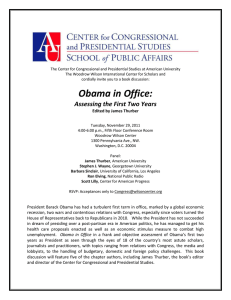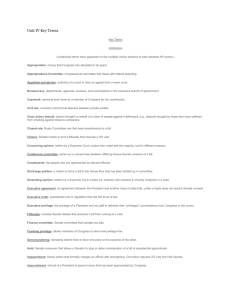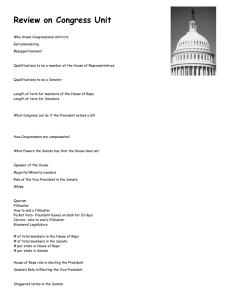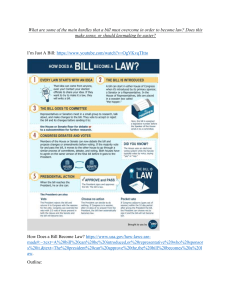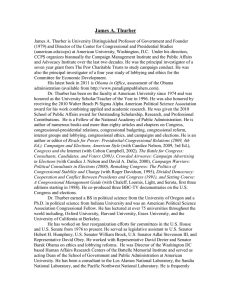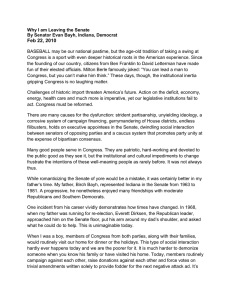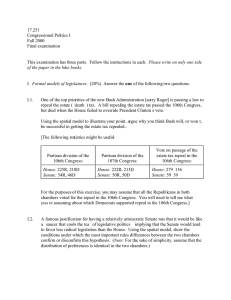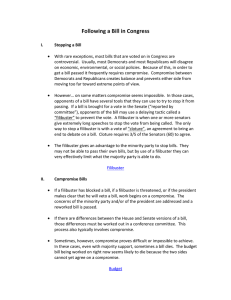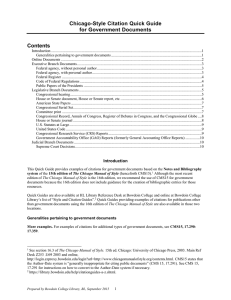Opening Statement For
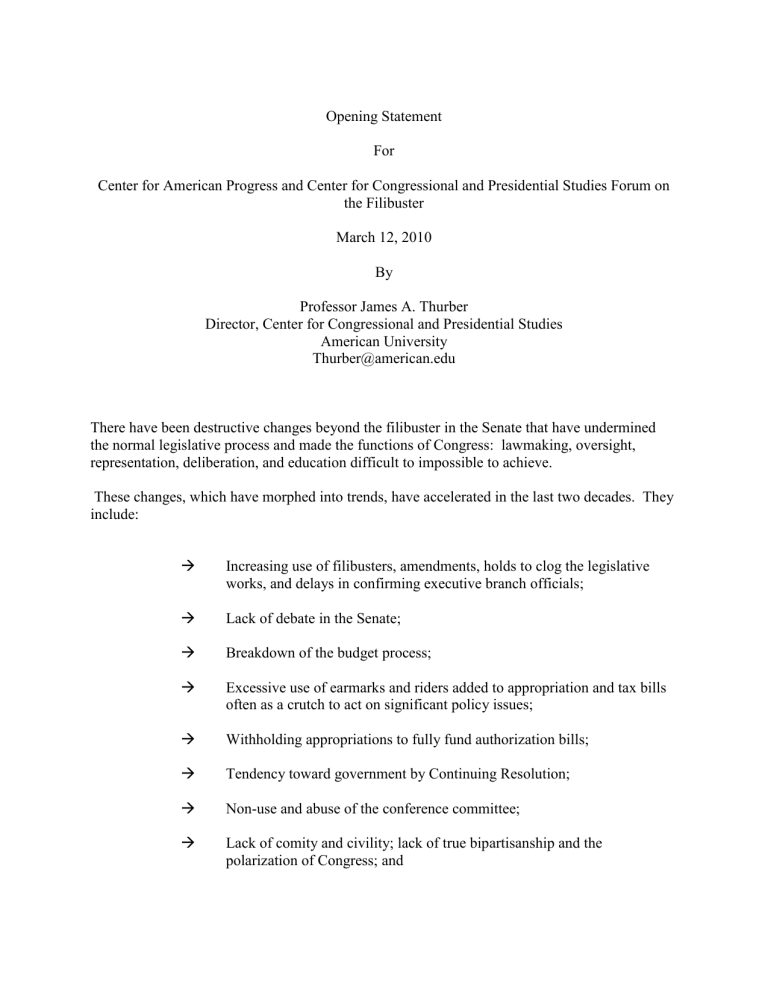
Opening Statement
For
Center for American Progress and Center for Congressional and Presidential Studies Forum on the Filibuster
March 12, 2010
By
Professor James A. Thurber
Director, Center for Congressional and Presidential Studies
American University
Thurber@american.edu
There have been destructive changes beyond the filibuster in the Senate that have undermined the normal legislative process and made the functions of Congress: lawmaking, oversight, representation, deliberation, and education difficult to impossible to achieve.
These changes, which have morphed into trends, have accelerated in the last two decades. They include:
Increasing use of filibusters, amendments, holds to clog the legislative works, and delays in confirming executive branch officials;
Lack of debate in the Senate;
Breakdown of the budget process;
Excessive use of earmarks and riders added to appropriation and tax bills often as a crutch to act on significant policy issues;
Withholding appropriations to fully fund authorization bills;
Tendency toward government by Continuing Resolution;
Non-use and abuse of the conference committee;
Lack of comity and civility; lack of true bipartisanship and the polarization of Congress; and
The ineffective oversight of the executive branch.
These trends have led to a continuing serious decline of public confidence and trust in Congress and government generally, increased skepticism and cynicism, and discouraged public participation in the process. This has led to disrespect for Congress, its processes and the results of its lawmaking that eats at the very core of our democracy.
The forum today will focus primarily on the filibuster in the Senate, but this discussion is within the context of these several other problematic trends.
